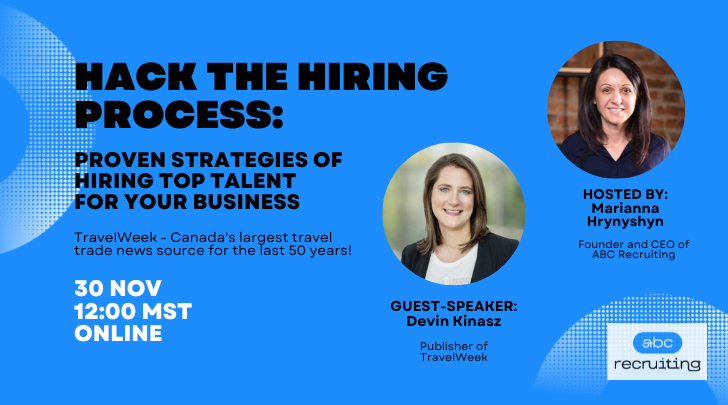Hire offshore developers on demand for your software projects. Get access to talented engineers around the world to build your web and mobile apps.
The Transformation of IT Outsourcing: 2024 Trends Reshaping the Industry
The year 2024 will mark a turning point for IT outsourcing. As emerging technologies rapidly reshape business processes, outsourcing strategies must evolve to keep pace. You will need to reevaluate existing IT outsourcing partnerships and consider new global delivery models to drive innovation and value.
Blockchain, automation, and artificial intelligence are transforming IT infrastructure and the workforce. Many traditional outsourcing roles will be eliminated, while new highly-skilled jobs are created. Service providers able to retrain and upskill employees will be poised to thrive. At the same time, as more services become automated, you will demand greater transparency and accountability to maximize cost efficiency and security.
In just five years, the IT outsourcing industry will look remarkably different. Though change brings challenges, it also brings opportunity. By understanding key trends, you can revamp your IT outsourcing strategy to access world-class talent, optimize resources, strengthen data protection, and achieve competitive advantage through technology innovation with strategic partners. The future is bright for organizations and service providers able to adapt to this fast-paced digital transformation.
The Growing Demand for IT Outsourcing
In 2024, the demand for IT outsourcing services will expand significantly as companies aim to gain a competitive advantage through digital transformation and cost reduction. According to recent surveys, over 80% of CIOs plan to increase outsourcing budgets by at least 25% in the next 3 years.
As technologies like cloud computing, automation, and AI mature, outsourcing IT infrastructure and software development will be increasingly compelling options. Migrating systems to the cloud and outsourcing their management can decrease costs by up to 60% while improving scalability and resilience. Similarly, outsourcing application development and maintenance to specialized technology service providers can reduce costs and increase innovation.
The shortage of technical talent will also drive companies to outsource IT functions. With over 4 million unfilled IT jobs expected in 2024, outsourcing will be the only viable way for most companies to keep up with demand and new technologies. Outsourcing partners with large talent pools and expertise in emerging areas like intelligent automation, blockchain, and quantum computing will be especially attractive.
In summary, the major factors fueling the growth of IT outsourcing in 2024 and beyond are cost reduction, lack of internal skills, demand for innovation, and the increasing complexity of technologies. For any organization looking to optimize IT costs, access scarce talent, and accelerate digital transformation, outsourcing will likely become an essential strategy. The future of IT outsourcing is bright, and companies that capitalize on these trends will gain a sustainable competitive advantage.
Emerging Locations for IT Outsourcing Services
As globalization and technology continue to develop at an exponential rate, the locations for IT outsourcing are diversifying quickly. By 2024, the options for outsourcing IT services will expand beyond the current major hubs. ###Emerging Locations Gaining Traction
New destinations are poised to compete with established locations like India, China and Eastern Europe. Places such as Vietnam, Malaysia, and Brazil offer competitive costs, a skilled talent pool, and proximity to major markets.
Vietnam has a young, educated population and wages up to 50% lower than China. Nearshore to the APAC region, Vietnam could capture more complex IT outsourcing work. Malaysia also borders Singapore, a global tech hub, and has the infrastructure to support IT outsourcing with costs 25-30% lower than India.
Likewise, Brazil is strategically located near North America and has a capable workforce and significantly lower costs than the US and Canada. As Latin America's largest economy, Brazil is set to become an attractive outsourcing destination for North American companies seeking cost-efficient IT outsourcing solutions closer to home.
While risks like data privacy concerns, intellectual property protection, and political instability remain, emerging locations are poised to reshape the IT outsourcing landscape by 2024 if they continue enhancing their digital infrastructure, technical skills, and global connectedness. By offering high-quality, lower-cost IT outsourcing options in convenient time zones, these emerging locations could soon compete for a share of the global outsourcing market. With proper due diligence, companies can benefit from first-mover advantages in these up-and-coming IT outsourcing hubs.
The Rise of Intelligent Automation in IT Outsourcing
The rapid advancement of intelligent automation technologies like artificial intelligence (AI) and robotic process automation (RPA) is transforming IT outsourcing. By 2024, intelligent automation will play a much larger role in IT outsourcing engagements.
AI and machine learning allow IT service providers to gain deeper insights into business processes and IT infrastructure to optimize performance and reduce costs. Chatbots and virtual agents can handle basic user support requests, freeing up human agents to focus on more complex issues. RPA automates repetitive, rules-based tasks like data entry, allowing outsourced staff to concentrate on higher-value work.
Together, AI and RPA enable IT outsourcing companies to streamline services, boost productivity, enhance end-user experiences, and cut operational expenses. According to Gartner, the use of AI and RPA in IT outsourcing will grow substantially in the coming years as more organizations realize the benefits. By integrating intelligent automation into engagements, IT service providers can gain a competitive advantage and build stronger, long-term client relationships.
For clients, intelligent automation brings a multitude of benefits to IT outsourcing arrangements. AI and RPA reduce the need for labor-intensive tasks, allowing outsourced staff to focus on strategic priorities. They also enable faster response times, higher accuracy, and 24/7 availability for certain IT support functions like help desk assistance. With AI and RPA, clients gain access to innovative, data-driven tools that help optimize IT infrastructure and applications.
The rise of intelligent automation will significantly impact IT outsourcing over the next few years. AI, RPA and other technologies will transform how IT services are delivered and create new value for both clients and service providers. By staying at the forefront of automation trends, companies can gain a competitive edge and maximize the benefits of IT outsourcing.
Changing Expectations for IT Outsourcing Relationships
The client-provider dynamic in IT outsourcing is evolving. In 2024, outsourcing relationships will be defined by partnerships, not transactions. Both clients and providers seek long-term, mutually beneficial partnerships built on trust and transparency.
As a client, you can expect providers to take a vested interest in your business outcomes and key performance indicators (KPIs). Providers will gain a deeper understanding of your business and strategic priorities to deliver tailored solutions, not generic services. They will invest in your success and growth over the long run.
Providers also want partners, not just clients. They seek clients who value collaboration and are willing to share knowledge, data and insights to enable continuous service improvements and innovations. Providers expect clients to be transparent about their needs, challenges and goals so they can respond with the right solutions and resources.
The days of transactional, short-term outsourcing deals are coming to an end. Clients and providers both recognize the benefits of long-term, mutually trusting partnerships where risks, rewards and knowledge are shared. This partnering mindset will define the next generation of outsourcing relationships.
To facilitate these strategic partnerships, SLAs and KPIs will focus more on business outcomes, not just technical metrics. Pricing models will also evolve to incorporate gainsharing and align provider compensation with client success. With a shared vision and incentives, clients and providers can work together to achieve transformational benefits from IT outsourcing.
The future of IT outsourcing in 2024 is partnerships, not transactions. Long-term relationships, transparency and a shared commitment to success will be the hallmarks of outsourcing deals in the coming years. This new partnering dynamic will enable IT outsourcing to deliver even greater value as a strategic lever for business success. Clients and providers should prepare now to build the partnerships that will shape this new era.
Increasing Focus on Cybersecurity in IT Outsourcing
As IT outsourcing continues to evolve, cybersecurity is becoming an increasing priority for companies and their outsourcing providers. In 2024, there will be a stronger focus on cybersecurity across the IT outsourcing industry.
Compliance with Data Protection Regulations
IT outsourcing providers will need to demonstrate compliance with data protection laws like GDPR to win and retain clients. They must have robust data security controls and governance models in place to protect client data and avoid data breaches.
Security as a Key Selection Criteria
When evaluating IT outsourcing proposals, companies will prioritize cybersecurity capabilities and credentials. Providers that can showcase advanced security certifications, strategic partnerships with cybersecurity vendors, and a track record of zero data breaches will be in a competitive position. IT outsourcing partners will be evaluated not just on technical skills but also security expertise.
Proactive Cyber Risk Management
Leading IT outsourcing providers will take a proactive approach to cyber risk management. This includes conducting regular risk assessments, vulnerability testing, and security audits. They will monitor cyber threats and have response plans ready in the event of an attack. Providers should also offer clients transparency into their security policies, controls, and any past cyber incidents.
Investment in Security Technologies
IT outsourcing companies will invest heavily in security technologies like data encryption, multi-factor authentication, security information and event management (SIEM) tools, and artificial intelligence for cyber defense. They need to deploy the latest security tools and software to detect and mitigate threats as well as gain a competitive edge.
In summary, there will be significant changes in how IT outsourcing addresses cyber risks and data protection in 2024. Companies will outsource to providers that make security a top priority and are dedicated to safeguarding client data and systems. IT outsourcing firms must be proactive, compliant, and transparent in their cybersecurity programs to thrive. Focusing on security will build trust and help the industry adapt to digital transformation.
To Summarize the content
As the IT outsourcing industry continues to transform in 2024, you should expect to see major shifts in how services are delivered and consumed. The global, distributed workforce will demand more flexible, customized solutions to meet business needs. Security and governance concerns will drive more comprehensive managed services partnerships. Automation and AI will eliminate some roles, while creating new opportunities in data science, UX design, and strategic consulting. Cost efficiencies will still matter but value, innovation and business impact will determine the real winners and losers. The future of IT outsourcing is bright for those able to adapt to the pace of technology change and forge strategic, collaborative relationships. Success will come to the agile, the innovative, and the globally minded.
How Emphasizing Soft Skills Elevates Your Company's IT Recruitment Strategy
Focus on soft skills and non-technical skills to improve your IT recruitment strategy and attract top talent.
Hack The Hiring Process: Proven Strategies Of Hiring Top Talent For Your Business
Exciting News! Captivating webinar! This time with Devin Kinasz, Publisher of Travelweek - Canada's largest travel trade news source for the last 50 years! As the travel industry continues to evolve, so does the hiring landscape within it. In this not-to-be-missed webinar, join us as we delve into the fascinating world of hiring with Devin Kinasz, gaining insights into the history, changes, and future trends of staffing at Travelweek.
Riding the Offshore Recruitment Wave: A Startup's Guide
So you've got a great startup idea and some solid funding, now it's time to start building your team. While hiring local talent may seem like the obvious choice, don't discount the opportunity to recruit offshore. Tapping into overseas talent pools can help you scale your team quickly and cost-effectively. But offshore recruitment does come with challenges.
You'll need to navigate time zones, cultural differences, and communication barriers. If not handled properly, these issues can reduce productivity, frustrate your team, and ultimately hurt your business. The good news is, with the right strategy and management, the rewards of offshore recruitment far outweigh the risks. This guide will walk you through the entire process step-by-step, from identifying roles to hire for, to screening and onboarding candidates, to effectively managing an offshore team. By the end, you'll have the knowledge and tools needed to ride the offshore recruitment wave all the way to startup success.
Tech Recruitment for Startups: Keys to Hiring the Best IT Talent
As an early-stage company, it's critical to get the right talent in place that will propel your vision forward. But with scarce resources and a small budget, how do you attract and hire the best developers and engineers? Don't worry, we've got you covered. Here are 4 keys we've found essential for recruiting top IT talent on a startup budget. Implement these strategies and you'll be well on your way to building an all-star team to drive your startup to the next level. Read on to learn how to find, attract, and hire the technical superstars that will make your startup a success.
Hiring for the Gig Economy: Managing IT Freelancers for Project Success
In the fast-paced and ever-evolving landscape of the IT industry, startups are increasingly turning to freelance IT professionals to meet their project needs. The gig economy has revolutionized the way businesses operate, providing flexibility and scalability that traditional hiring models often lack. However, effectively managing IT freelancers requires a strategic approach to ensure project success. In this article, we'll explore the nuances of hiring for the gig economy and offer insights on how IT startups can optimize their recruitment processes for freelance talent.
How Offshore Recruiting Agencies Help Startups Access Global IT Talent
You've got big plans for your tech startup. You want to build an innovative product, disrupt an industry, and scale quickly to meet demand. There's just one problem: hiring top engineering talent is hard. Really hard. The competition for skilled developers is fierce, and you're competing against tech giants with deep pockets. How can a scrappy little startup like yours attract and hire the talent it needs to succeed? The answer may surprise you: look offshore. By leveraging offshore recruiting agencies, startups can access a global pool of IT talent at a fraction of the cost. Read on to learn how offshoring your tech recruiting can help your startup move fast and build what really matters.
Navigating the Talent Pool: Top Strategies for IT Startups in Recruiting Tech Talent
In the fast-paced and competitive landscape of IT startups, recruiting top-notch tech talent is not just a necessity; it's a strategic imperative. The success of any IT venture hinges on the capabilities and expertise of the individuals driving innovation and development. As the demand for skilled professionals continues to rise, navigating the talent pool effectively becomes crucial for startups looking to build a dynamic and high-performing team. In this article, we will explore key strategies for IT startups to excel in talent tech recruitment and elevate their IT hiring game.
Preparing for Offshore IT Recruitment: A Checklist for Employers
In the ever-evolving landscape of Information Technology (IT), the need for talent has never been more critical. IT startups, in particular, face unique challenges when it comes to building a high-performing team. Offshore IT recruitment has become an attractive solution for many startups looking to tap into a global talent pool and stay competitive in the market. However, navigating offshore IT recruitment can be a daunting task. To help you streamline the process, we've put together a comprehensive checklist for employers considering offshore IT recruitment.









